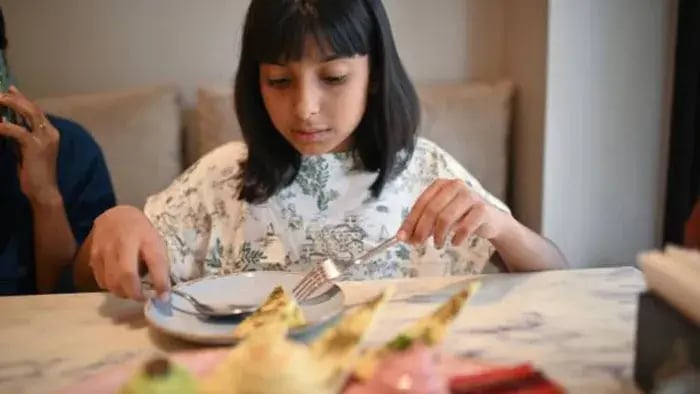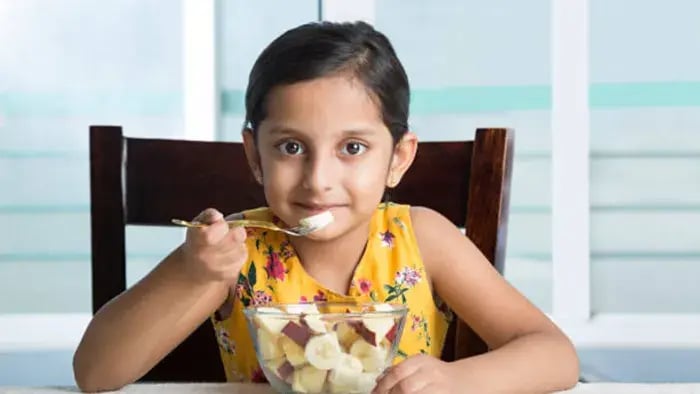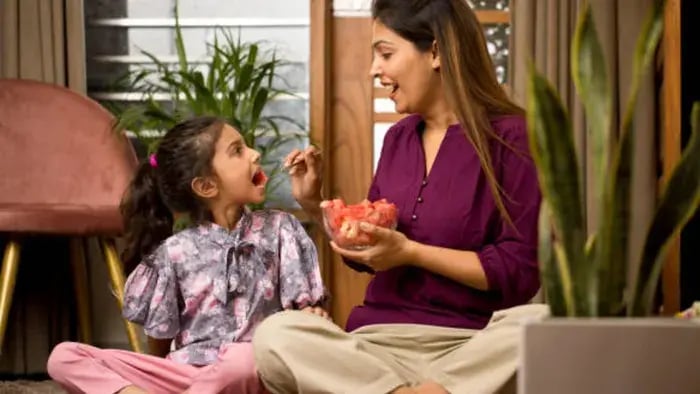- Peanuts
- Sunflower Seeds
- Spinach (Palak)
- Almonds (Badam)
- Mustard Oil (Sarson ka Tel)
- Sesame Seeds (Til)
- Pumpkin (Kaddu)
Introduction
Kids grow fast, and so do their nutritional needs. Vitamin E plays a big role in helping kids stay strong and healthy. It helps heal cuts faster, keeps their skin soft, supports shiny hair, and even strengthens their immune system, so they can bounce back from colds and keep up with school, playtime, and everything in between.

The good news is, you don’t need fancy foods to include it. Indian kitchens already have Vitamin E-rich ingredients like peanuts, sunflower seeds, spinach, and everyday oils. Just by adding a handful of peanuts to a dry snack, stirring spinach into dal, or using sunflower oil for cooking, you're already covering a lot. Even a spoon of homemade chutney or a small laddoo made right can make a difference. It’s all about simple tweaks that work with your daily routine, not against it.
Vitamin E is fat-soluble, so it absorbs best when paired with healthy fats. So a little ghee on that roti or oil in their sabzi doesn’t just add flavor, it actually helps their body use what’s on the plate better. Focusing on foods rich in Vitamin E is one of the simplest and most natural ways to support your child’s overall growth, inside and out.
Everyday Indian Foods with Vitamin E Benefits for Growing Kids

Eating right for strong hair, glowing skin, and a healthy immune system doesn’t always need special ingredients or supplements. Sometimes, it’s about noticing what’s already on the table and making it work smarter for your child’s growing needs. Vitamin E is one such nutrient. It protects cells, supports healing, and works behind the scenes to maintain healthy skin, shiny hair, and immune balance.
Here’s a look at seven simple Indian foods that are naturally high in Vitamin E, easy to find, easier to cook, and great for your child’s everyday meals.
Peanuts
Roasted, boiled, or in the form of chutney, peanuts are a budget-friendly and nutrient-packed snack. According to a study published in J Food Sci Technol. 2015, they are rich in Vitamin E and healthy fats, which help improve nutrient absorption. You can use crushed peanuts in sabzis, add them to poha, or offer dry-roasted peanuts as a school tiffin treat. Just ensure they’re age-appropriate and always supervised for toddlers.
Sunflower Seeds
According to the National Institutes of Health, sunflower seeds are one of the richest plant-based sources of Vitamin E. You can roast and mix them with murmura or sprinkle them over fruit bowls and curd. They’re crunchy, nutty, and fun to eat. For kids who love experimenting, sunflower seed laddoos or seed bars are a great snack option with long shelf life.
Spinach (Palak)
As per a study published in Nutrients. 2020, spinach is a treasure chest of nutrients, including Vitamin E, iron, and folate. You can blend it into rotis, make palak paratha, stir it into daal, or puree it into pasta sauce. For fussy eaters, a spinach-pumpkin soup works wonders during dinner. Combining it with a little ghee or oil ensures better Vitamin E absorption.
Almonds (Badam)
Research conducted by, Eur J Nutr. 2017, shows that almonds are well-known for brain health, but they’re also rich in Vitamin E. Soaked almonds in the morning are a traditional and smart way to support immunity, memory, and skin health. If your child isn’t fond of whole almonds, almond powder can be mixed in halwa, smoothies, or kheer.
Mustard Oil (Sarson ka Tel)
According to FSSAI, mustard oil is commonly used in North Indian cooking and is a natural source of Vitamin E and healthy fats. It’s ideal for sautéing vegetables or making light sabzis and stir-fries. It also doubles up as a massage oil to nourish skin and strengthen hair from the outside.
Sesame Seeds (Til)
Sesame seeds are widely used across Indian kitchens in laddoos, chutneys, curries, and even as toppings for rotis. According to a study published in Nutrients. 2022, it is rich in Vitamin E, calcium, and healthy fats, which support both skin health and bone development. Mix them into dry chutneys or use sesame paste in dosas and curries for added texture and nutrition.
Pumpkin (Kaddu)
Research conducted by Food Prod Process Nutr. 2023 shows that pumpkin is gentle on the tummy and rich in fiber, Vitamin A, and Vitamin E. It’s great for children with digestive sensitivities. You can cook it into a dry sabzi, mash it into dal, or even add grated pumpkin to pancake batter or idli mix. Its naturally sweet taste makes it a hit with toddlers, too.
Conclusion

Including Vitamin E in your child’s everyday meals is about smart swaps and little additions. A few nuts here, some green vegetables there, and the right cooking oils can build a routine that supports hair, skin, and immunity in a natural, enjoyable way. Every child grows at their own pace, but giving them nourishing foods consistently sets the tone for long-term well-being. Let meals be simple, thoughtful, and full of the quiet power that Indian food traditions already hold.
Her love for storytelling began with reading her grandfather’s speeches, where Tarishi saw the power of words in creating lasting memories. Combining her passions for food and writing, she has turned her life into a fulfilling path of sharing stories that celebrate flavours and how food brings communities together.
The views expressed are that of the expert alone.
The information provided in this content is for informational purposes only and should not be considered a substitute for professional medical advice, diagnosis, or treatment. Always seek the advice of your physician or another qualified healthcare provider before making any significant changes to your diet, exercise, or medication routines.
References
https://pmc.ncbi.nlm.nih.gov/articles/PMC10030350/
https://pmc.ncbi.nlm.nih.gov/articles/PMC9573514/
https://fssai.gov.in/upload/media/FSSAI_new_mustard_Express_28_06_2021.pdf
https://pmc.ncbi.nlm.nih.gov/articles/PMC6105263/
https://pmc.ncbi.nlm.nih.gov/articles/PMC7019735/
https://ods.od.nih.gov/factsheets/VitaminE-HealthProfessional/
















